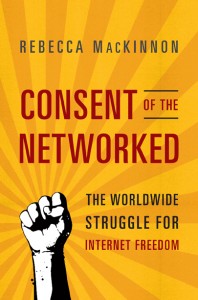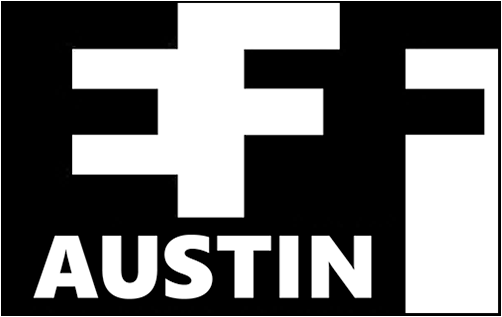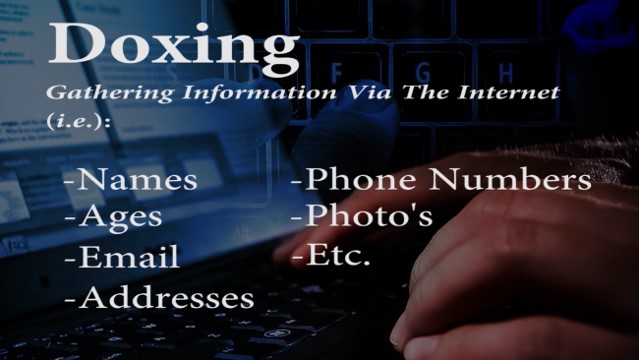 Don’t miss the two-week discussion with Rebecca MacKinnon, author of Consent of the Networked, about global online civil liberties, led by EFF-Austin’s Jon Lebkowsky, currently in progress on the WELL.
Don’t miss the two-week discussion with Rebecca MacKinnon, author of Consent of the Networked, about global online civil liberties, led by EFF-Austin’s Jon Lebkowsky, currently in progress on the WELL.
Now, I assume everybody here is familiar with the recent fight to kill the Stop Online Piracy Act (SOPA), where we saw a joining of forces between American Internet companies and activists against the entertainment industry and other American companies that fall under the category of “the copyright lobby.” It is unfortunate that some American businesses want to corrode people’s freedom to connect in order to protect their outmoded business models, and fortunate that other American businesses are putting some serious cash and lobbying muscle into countering them. But congress wouldn’t have halted its trajectory if it hadn’t been for the grassroots activists like Fightforthefuture.org and many others, as well as nonprofits like Wikipedia who brought a moral force to the argument that tipped the scales and mobilized voters to call their representatives.
When it comes to legislation like the Cyber Intelligence Sharing and Protection Act (CISPA) which passed the House and is on its way to the Senate, the role of American Internet companies is a lot more troubling. Despite concerns that this legislation lacks safeguards that would protect Americans from unaccountable spying by the NSA and others, many American businesses continue to support it because they are concerned about the security of their networks and want something to be done. They have yet to be convinced that they should only support legislation that contains adequate civil liberties protections. Which brings me back to the original point- achieving freedom to connect is much easier than achieving freedom from illegitimate, unaccountable surveillance.
Finally, there is the issue of what I call the power exercised by Internet companies over people’s identities and their privacy. This has more to do with freedom from fear than freedom to connect. To make a long story short, American companies like Google and Facebook do a much better job at freedom to connect than they do at freedom from fear. For a taste of what my book says about the lands of Facebookistan and Googledom, see this adapted excerpt in Slate:
http://tinyurl.com/6ujz9ypAs for activists in the USA, people are doing a tremendous amount of good work fighting to keep our own Internet open and free, despite a lot of political and commercial forces pushing in the opposite direction. American activists working for Internet freedom elsewhere around are most effective, in my view, when they start from the premise that Internet freedom faces threats absolutely everywhere, and that the United States is a far cry from a perfect model particularly on issues of surveillance. Showing up with an attitude that basically says “Hi, I’m a white night from the land of the free riding in to save you” doesn’t tend to go down well. A more effective attitude is “Hi, I’m here in solidarity to support you in your part of the global struggle. How can I be most helpful?” A number of times I’ve seen people from Egypt, Syria and China get asked that question. Often the answer is: “sort out your own country’s contradictions so that our governments can have better models to follow.”



